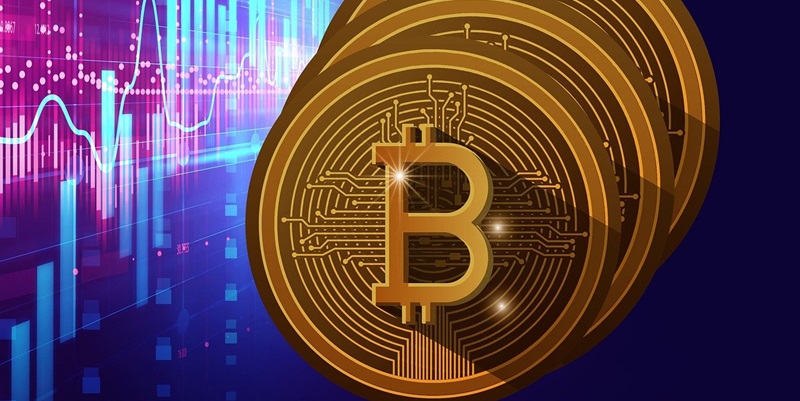In what is being hailed as one of the most significant developments in the cryptocurrency world, the long-awaited reimbursement plans of the defunct cryptocurrency exchange Mt.Gox are finally set to commence. Beginning in July 2024, Mt.Gox will start repaying its users in Bitcoin (BTC) and Bitcoin Cash (BCH), nearly a decade after a notorious hack led to the theft of about 740,000 BTC and subsequent collapse of the exchange. The announcement has brought a mix of relief and apprehension to the crypto community. Nobuaki Kobayashi, the Rehabilitation Trustee, confirmed that while preparations for the repayment are complete, due diligence and stringent safety measures are still necessary before the actual distribution can begin. This meticulous approach aims to ensure that this next chapter unfolds without further complications.
Market Implications and Speculations
The reimbursement plans of Mt.Gox are not simply a step towards justice for those who lost their assets; they are also anticipated to have a profound impact on the broader cryptocurrency market. Industry insiders are voicing concerns that the impending repayments could trigger significant selling pressure on Bitcoin. Many early investors, who are likely to receive sizeable allocations at current high valuations compared to their initial purchase prices, might choose to liquidate their holdings. This sentiment is not unfounded. Following the announcement of the repayment plans, Bitcoin’s price fell sharply, demonstrating the market’s sensitivity to news of large-scale BTC movements. The potential market impact adds a layer of complexity to an already volatile crypto landscape, where price swings can have cascading effects across the board.
Moreover, the market’s reaction highlights the interconnected nature of cryptocurrency exchanges and investor behavior. The large movement of over 141,686 Bitcoin from Mt.Gox-related addresses to unknown addresses earlier this year has only added to the speculation. This movement, worth around $9 billion, stoked rumors about the timing and scale of the repayments, sparking further volatility. While the cryptocurrency market is known for its unpredictable nature, this particular event underscores just how susceptible it remains to large-volume transactions and news-driven reactions. The industry will undoubtedly be watching closely as the repayments begin, analyzing each move for its potential impact on Bitcoin and the broader crypto ecosystem.
Historical Context and Lessons Learned
Mt.Gox’s downfall serves as a stark reminder of the vulnerabilities that existed in early cryptocurrency exchanges. At its peak, Mt.Gox handled approximately 70% of all Bitcoin transactions globally, making its collapse a watershed moment for the industry. The 2014 hack not only led to significant financial losses but also served as a wake-up call for enhanced security measures within the ecosystem. Since then, the industry has seen a marked improvement in the security protocols employed by modern exchanges. Two-factor authentication, cold storage solutions, and regular security audits are now standard practices aimed at protecting investors and their assets from potential threats.
Furthermore, Mt.Gox’s collapse has played a pivotal role in advancing regulatory oversight within the cryptocurrency space. Governments and regulatory bodies around the world have since taken steps to introduce frameworks designed to safeguard investors and ensure operational transparency among exchanges. While these measures have not eliminated all risks, they have certainly contributed to a more secure and regulated environment. The tragic events surrounding Mt.Gox have driven home the necessity for continuous improvement and adaptation within the rapidly evolving digital asset market.
Broader Market Trends and Future Implications
Mt.Gox’s downfall highlights the vulnerabilities in early cryptocurrency exchanges. At its zenith, Mt.Gox managed around 70% of all Bitcoin transactions worldwide, making its 2014 collapse a pivotal moment for the industry. The hack not only caused substantial financial losses but also underscored the need for improved security measures. Since then, the industry has significantly upgraded its security protocols. Today, two-factor authentication, cold storage solutions, and regular security audits have become standard practices, aimed at safeguarding investors and their assets from potential threats.
Additionally, the collapse of Mt.Gox has spurred the advancement of regulatory oversight in the cryptocurrency sector. Governments and regulatory bodies globally have taken steps to establish frameworks to protect investors and ensure transparency in exchange operations. While these measures haven’t eradicated all risks, they have significantly enhanced security and regulation in the market. The unfortunate events surrounding Mt.Gox underscore the need for continuous improvement and adaptation in the fast-evolving digital asset landscape. These efforts aim to create a more secure and reliable environment for all stakeholders.

